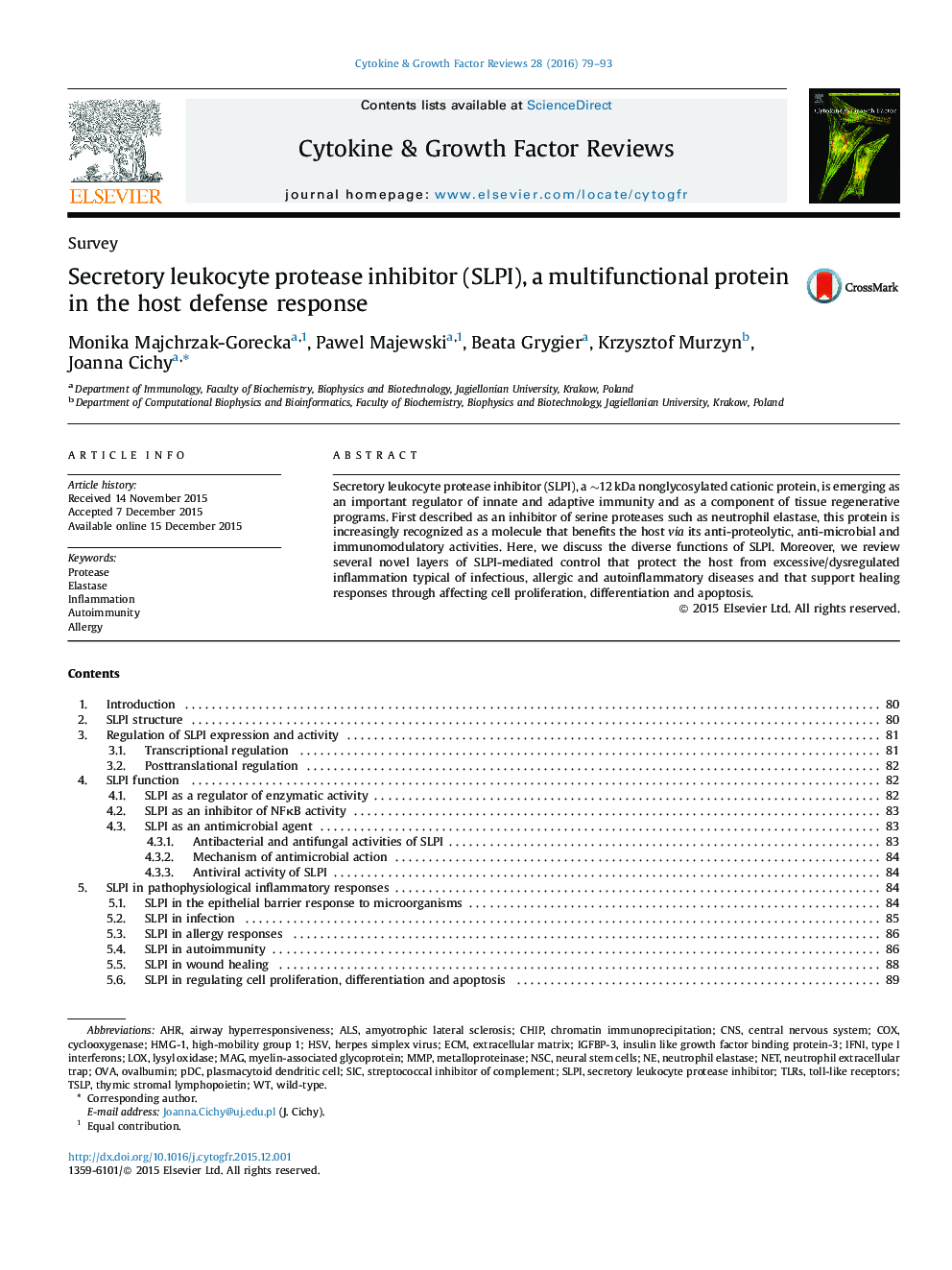| Article ID | Journal | Published Year | Pages | File Type |
|---|---|---|---|---|
| 2170427 | Cytokine & Growth Factor Reviews | 2016 | 15 Pages |
•SLPI plays a critical role in regulating host defense responses through multiple mechanisms.•SLPI restrains excessive responses to microbiota at epithelial body barriers.•SLPI controls microbial infection through its effects on microbes and the host.•SLPI exhibits anti-inflammatory properties in allergy and autoimmunity.•SLPI controls key steps of wound healing.•SLPI regulates cell renewal, differentiation and apoptosis.
Secretory leukocyte protease inhibitor (SLPI), a ∼12 kDa nonglycosylated cationic protein, is emerging as an important regulator of innate and adaptive immunity and as a component of tissue regenerative programs. First described as an inhibitor of serine proteases such as neutrophil elastase, this protein is increasingly recognized as a molecule that benefits the host via its anti-proteolytic, anti-microbial and immunomodulatory activities. Here, we discuss the diverse functions of SLPI. Moreover, we review several novel layers of SLPI-mediated control that protect the host from excessive/dysregulated inflammation typical of infectious, allergic and autoinflammatory diseases and that support healing responses through affecting cell proliferation, differentiation and apoptosis.
Graphical abstractFigure optionsDownload full-size imageDownload high-quality image (138 K)Download as PowerPoint slide
